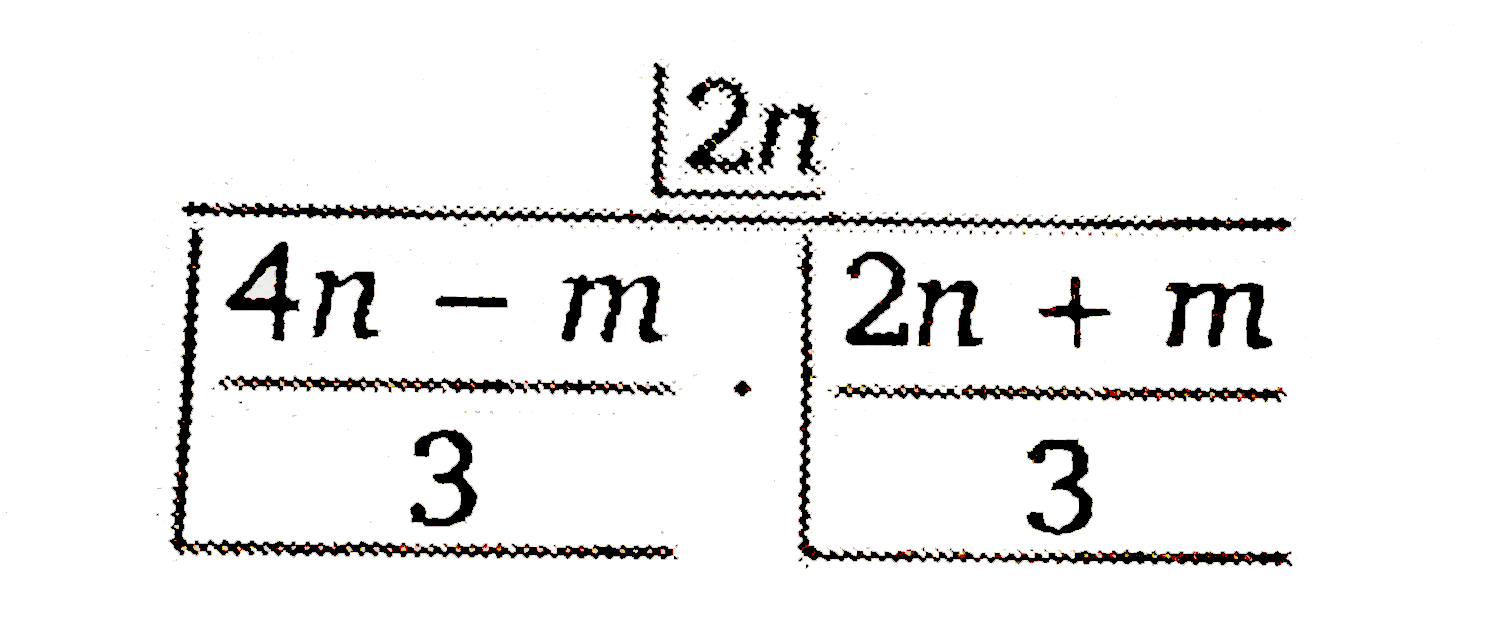Complete Solutions to Exercise 8C of chapter BINOMIAL THEOREM of Class 11 book with complete answers and questions
| Class 11 | MATHS |
| Chapter | BINOMIAL THEOREM |
| NAGEEN PRAKASHAN | Exercise 8C |
| Number Of Questions | 28 |
| Academic Year | 2023-24 |
Find the coefficient of `x^9` in the expansion of `(x^2-1/(3x))^9`.
View SolutionFind the coefficient of `x^(10)` in the expansion of `(1-x^(2))^(10)`
View SolutionThe coefficient of `x^(-17)` in the expansion of `(x^4-1/x^3)^(15)` is
View SolutionFind the coefficient of `x^(40)` in the expansion of `(1+2x+x^2)^(27)dot`
View SolutionIf 'n' is a positive integer then prove that the coefficient fo`x^(m)` in the expansion of `(x^(2)+(1)/(x))^(2n)` is :

View SolutionFind the term independent of x (constant term) in the following expansion:
`(i) (x^(2)-(1)/(3x))^(9) " "(ii) (x-(1)/(x))^(10)`
`(iii) (3x-(2)/(x^(2)))^(18) " "(iv) (1)/(x^(n))(1+x)^(2n)`
`(V)(3sqrt(x)+(1)/(2(3sqrt(x))))^(18)" "(vi)((3x^(2))/(2)-(1)/(3x))^(6)`
View SolutionProve that the constant term in the expansion of `(x+(1)/(x))^(2n) " is " (1.3.5…..(2n-1))/(|uln).2^(n)`
View SolutionFind the coefficient of `a^5b^7in(a-2b)^(12)`
View SolutionFind the coefficient of `x^(2).y^(7)` in the expansion of `(x+2y)^(9)`
View SolutionProve that the ratio of the coefficient of `x^10` in `(1 - x^2)^10` & the term independent of `x` in `(x-2/x)^10` is `1:32`
View SolutionProve that the greatest coefficient in the expansion of `(1+x)^(2n)` is double the greatest coefficient in expansion `(1+x)^(2n-1)`.
View SolutionFind a positive value of m for which the coefficient of `x^2` in the expansion of `(1+x)^m` is 6.
View SolutionThe sum of the coefficients of `x^(32)` and `x^(-17)` in `(x^4- 1/(x^3))^15` is
View SolutionIf the coefficient of `x^7` in `(ax^2+1/(bx))^11` is equal to the coefficient of `x^7` in `(ax-1/(bx^2))^11` then
View SolutionFind the coefficient of `x^9` in the expansion of `(x^2-1/(3x))^9`.
View SolutionFind the coefficient of `x^(10)` in the expansion of `(1-x^(2))^(10)`
View SolutionThe coefficient of `x^(-17)` in the expansion of `(x^4-1/x^3)^(15)` is
View SolutionFind the coefficient of `x^(40)` in the expansion of `(1+2x+x^2)^(27)dot`
View SolutionIf 'n' is a positive integer then prove that the coefficient fo`x^(m)` in the expansion of `(x^(2)+(1)/(x))^(2n)` is :

View SolutionFind the term independent of x (constant term) in the following expansion:
`(i) (x^(2)-(1)/(3x))^(9) " "(ii) (x-(1)/(x))^(10)`
`(iii) (3x-(2)/(x^(2)))^(18) " "(iv) (1)/(x^(n))(1+x)^(2n)`
`(V)(3sqrt(x)+(1)/(2(3sqrt(x))))^(18)" "(vi)((3x^(2))/(2)-(1)/(3x))^(6)`
View SolutionProve that the term independent of x in the expansion of `(x +1/x)^(2n)` is `{1 . 3 . 5.....(2n-1)}/(n!).2^n`
View SolutionFind the coefficient of `a^5b^7in(a-2b)^(12)`
View SolutionFind the coefficient of `x^(2).y^(7)` in the expansion of `(x+2y)^(9)`
View SolutionProve that the ratio of the coefficient of `x^10` in `(1 - x^2)^10` & the term independent of `x` in `(x-2/x)^10` is `1:32`
View Solutionprove that the coefficient of `x^n` in the expansion of `(1+x)^(2n)` is twice the coefficient of `x^n` in the expansion of `(1+x)^(2n-1)`
View SolutionFind a positive value of m for which the coefficient of `x^2` in the expansion of `(1+x)^m` is 6.
View SolutionThe sum of the coefficients of `x^(32)` and `x^(-17)` in `(x^4- 1/(x^3))^15` is
View SolutionFind the coefficients of `x^7` in `(a x^2+1/(b x))^(11)a n dx^(-7)in(a x^-1/(b x^2))^(11)` and find the relation between `aa n db` so that coefficients are equal.
View Solution
Exercise 8C questions and complete solutions for chapter BINOMIAL THEOREM of NAGEEN MATHS (HINGLISH) of Class 11